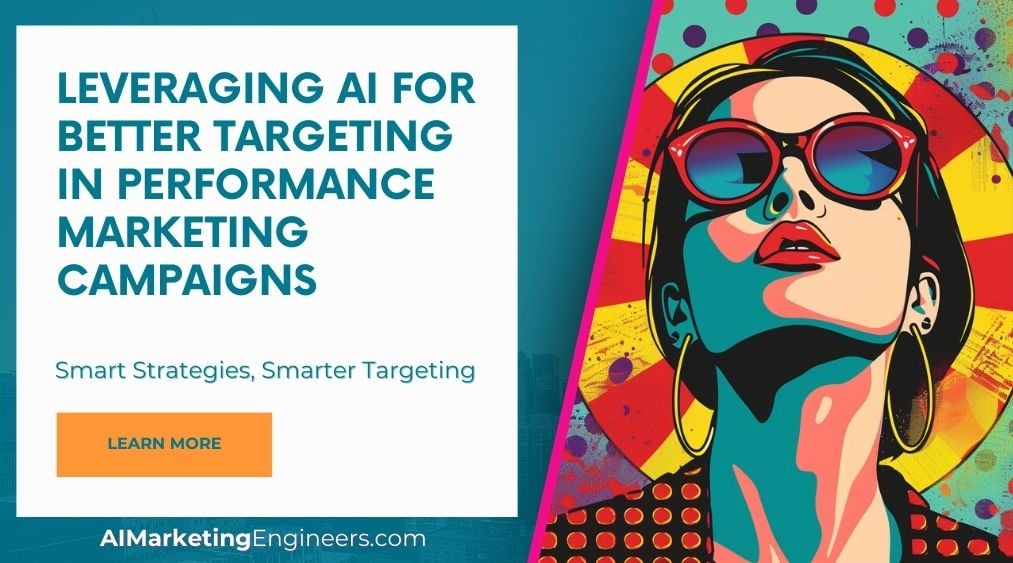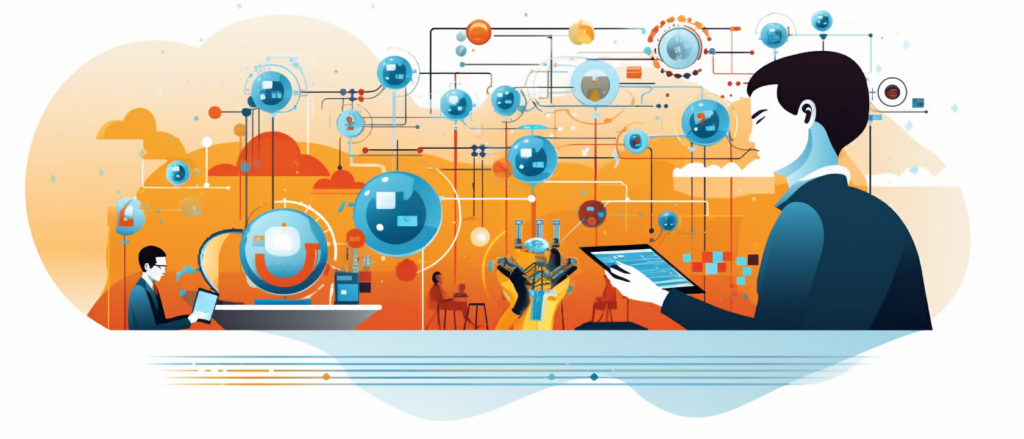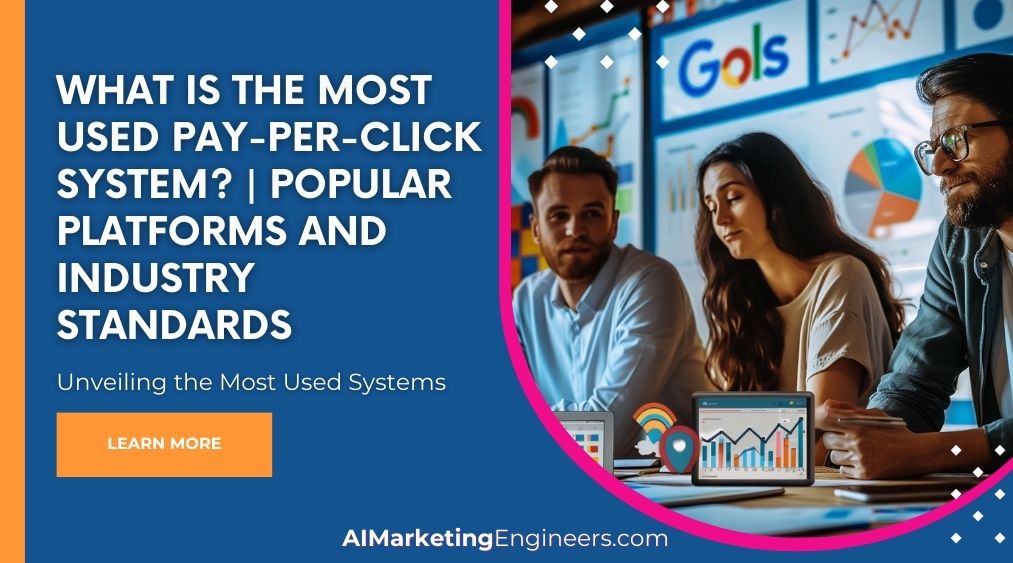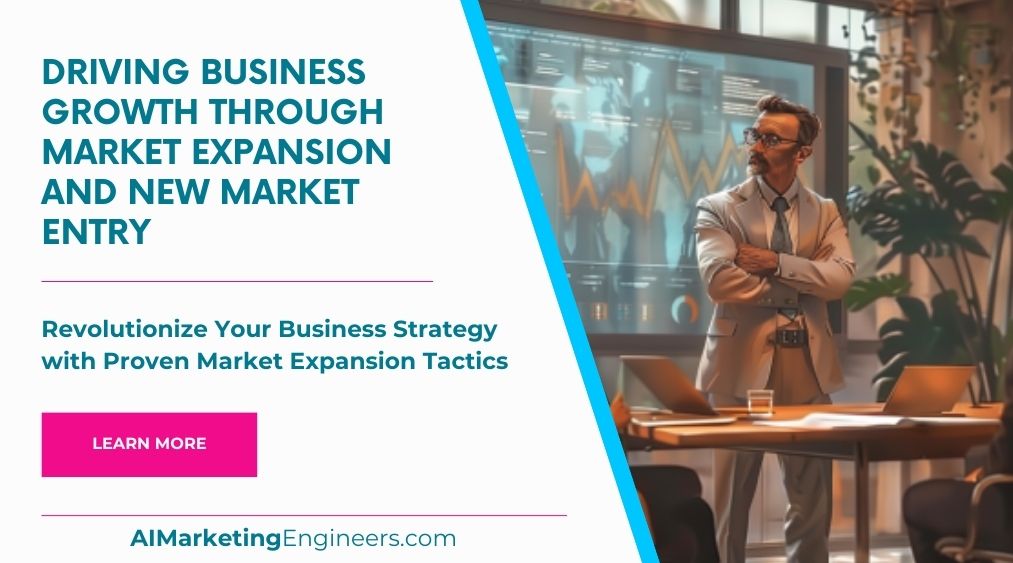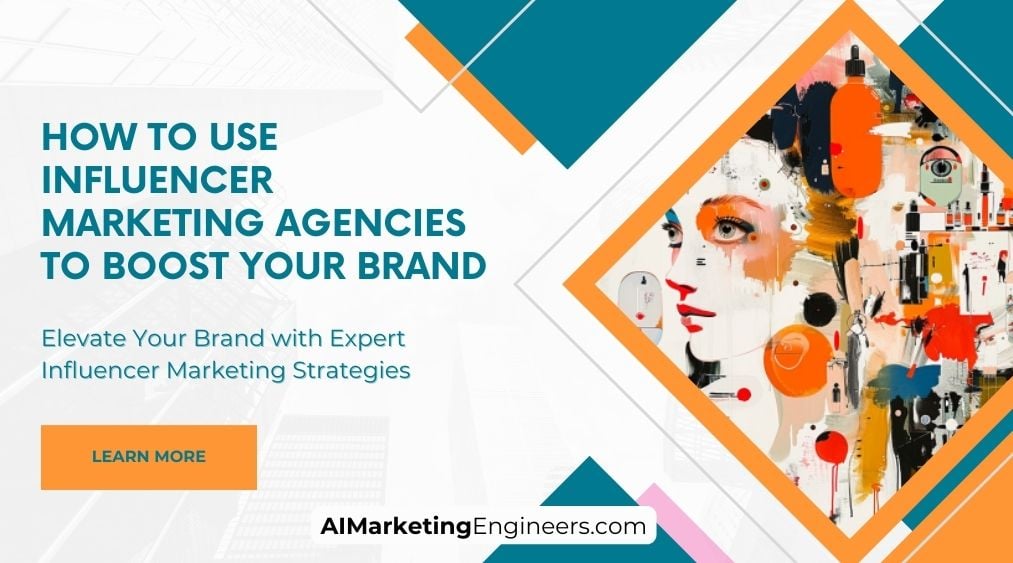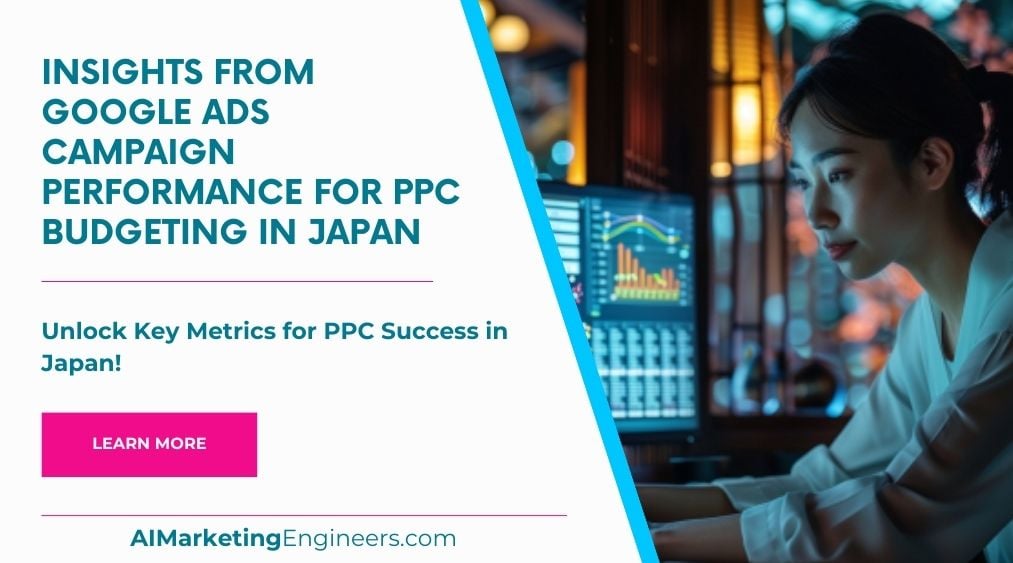Key Takeaways
✅ Personalization and Segmentation: By slicing through mountains of data, AI helps you talk to your customers with precision, like you're reading their minds. Tailored campaigns mean more clicks, more sales, and maybe even a few new fans.
✅ Real-time Optimization: Imagine you could tweak your campaign the second your audience's eyes glaze over. With AI, you’re always on your toes, planning your next smart move before your customer even thinks of browsing elsewhere.
✅ Improved Advertising Efficiency: Don't throw your cash to the wind. AI tightens up your ad spend, gets your message to the right ears, and invests every dollar where it counts, turning penny-pinchers into power spenders.
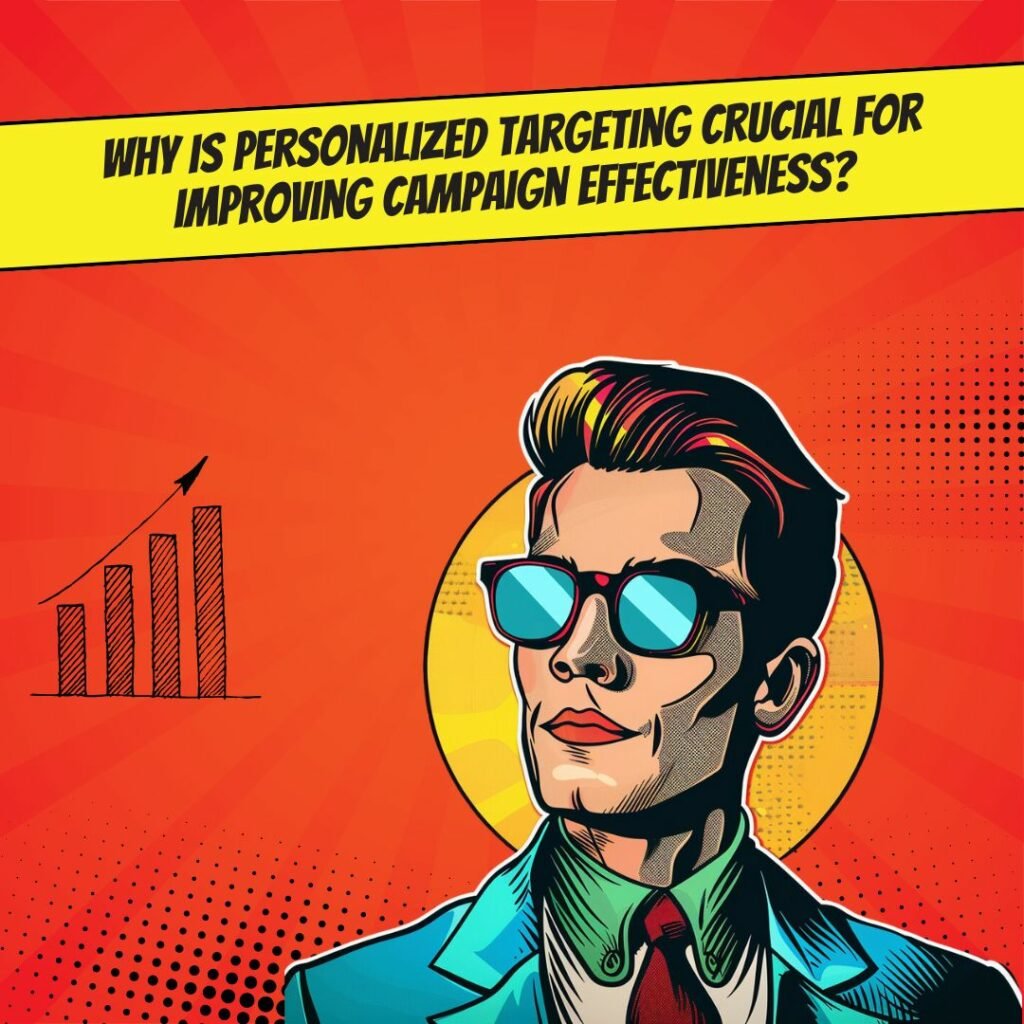
Introduction
Have you ever wished you could read minds? Well, while we can't quite give you that superpower, we can offer you the next best thing in the world of marketing: leveraging AI for better targeting in performance marketing campaigns. Now, why should you care about this? Performance marketing is all about results, and AI is the whizz-kid that can make your campaigns sharper, smarter, and more successful than ever before.
In this deep-dive, we're peeling back the curtain on the innovative world of AI-powered targeting. How does it work? Why does it matter? And most importantly, how can it fatten up your bottom line? We'll glide through modern trends, dish out some secrets, and even pull back the curtain on strategies that could seriously rev up your revenue, ROI, or ROAS.
Teetering on the cutting-edge, we promise to arm you with knowledge that's as actionable as it is mind-blowing. Are you ready to harness the power of AI and transform the way you target your audience? Keep reading, because we're about to take off into the land of marketing magic.
Top Statistics
| Statistic | Insight |
|---|---|
| Marketing Growth: The AI marketing sector is projected to grow to $32.7 billion by 2026.(Source: MarketsandMarkets) | With a staggering CAGR of 24.9%, the potential of AI-driven strategies in marketing clearly depicts a future where staying ahead means adapting quickly. |
| Sales and ROI: AI use in marketing and sales results in 80% more in sales growth.(Source: McKinsey)
|
The tangible benefits of AI are evident with a significant impact on performance, making the use of AI not just a choice but a necessity for competitive scaling. |
| Personalization Impact: 96% of marketers agree that personalization fosters customer relations and impacts revenue.(Source: Evergage and Researchscape International) | This high number is a wake-up call—personalizing your customer's experience isn't just nice, it's essential for nurturing relationships that drive growth. |
| Young Adult Engagement: 46% of U.S. adults ages 18-29 are almost always online.(Source: Pew Research Center) | This demographic's online presence multiplies the opportunities for targeted and personalized marketing using AI. They're not just online; they're ready for you to reach out with something that catches their eye. |
| AI Marketing Opportunities: AI-driven marketing to present a $2.1 trillion opportunity by 2025.(Source: Forrester) | Imagine tapping into that financial potential—employing AI in your marketing plans isn't just progressive; it's potentially highly profitable. |
Understanding AI in Performance Marketing
Have you ever wondered how some ads seem to follow you around the internet, almost like they know what you want before you do? That's AI at work in the background. AI, or Artificial Intelligence, is changing the way we do performance marketing by making sense of user data to target ads more effectively. Instead of casting a wide net, AI helps find the right people who are most likely to engage with an ad, making campaigns more efficient and cost-effective. Imagine aiming at a dartboard with your eyes closed compared to having AI guide your hand – that's how AI makes targeting in performance marketing so much better.
Data Collection and Analysis
Picture data as the lifeblood of AI-powered targeting. Companies collect information like what you click on, what you buy, and even how long you linger on a page. It may sound a bit like Big Brother, but AI uses this data to spot trends and patterns we can't see on our own. By analyzing this deluge of information, AI can figure out who's interested in running shoes, who's in the market for a laptop, or who just loves watching cooking videos. Without AI, sorting through this data would be like finding a needle in a haystack.
Personalization and Segmentation
Now, how does getting an ad for that specific pair of sunglasses you checked out last week sound to you? AI makes that happen through personalization. It crafts messages that speak directly to you, as if the ad is having a one-on-one conversation. And it gets better — AI can also split people up into groups, or segments, based on their interests and behaviors. So, if you're someone who loves outdoor adventures, AI might put you in a group that receives ads for hiking gear rather than kitchen appliances.
Predictive Modeling and Optimization
Imagine if you could predict the future. With AI's predictive modeling, marketers almost can. They use AI to guess what you'll do next – will you buy those sunglasses, or are you just browsing? This foresight enables them to make smarter decisions, like showing you an ad that might push you from "just looking" to "take my money!" And the magic isn't just in predicting; AI continuously optimizes campaigns, learning from successes and flops to fine-tune future ads.
Challenges and Opportunities
Sure, AI sounds great, but it's not all smooth sailing. There are concerns over data privacy, and rightly so. How much should companies know about you? And how are they using this information? These are the ethical questions businesses must wrestle with. But the opportunities, like better targeting and smarter campaigns, are tempting. It's a balancing act between using data responsibly and pushing the frontier of performance marketing.
Case Studies and Best Practices
Take a look at brands that are nailing AI-powered performance marketing. You've seen it when Spotify recommends your new favorite song or when Netflix suggests the perfect movie. These are not lucky guesses but results of AI analyzing your choices. The best practice here is clear: use data to offer value, not just push a sale. Be like Netflix, offering a movie you'll love, rather than a random suggestion that misses the mark.
So, what do you think? Are you ready to let AI take the steering wheel in your performance marketing campaigns? Remember, aim for that personal touch and keep your audience's trust front and center. After all, it's about making marketing so seamless that customers feel it's tailor-made just for them.
AI Marketing Engineers Recommendation
Recommendation 1: Harness Predictive Analytics for Improved Customer Segmentation: Start with what you already know about your customers. By digging into your business's historical data, Artificial Intelligence can predict who might want to buy your product in the future. It's like having a crystal ball, but way more accurate. Use AI-powered predictive analytics to segment your audience based on their behavior, preferences, and purchasing patterns. This makes your messages more personal and relevant, and let's face it, nobody likes getting ads for stuff they don't care about.
Recommendation 2: Integrate AI-Driven Insights for Real-time Personalization: Imagine walking into a store and the salesperson already knows exactly what you're looking for. That's what AI can do for your online campaigns. Keep an eye on the latest AI tools that analyze customer interactions in real-time. Then, tweak your ads and messages on the fly to match what your customers are into at that moment. If you've ever had an ad follow you around the internet, that's AI in action, but it can be much less creepy and way more helpful if done right.
Recommendation 3: Employ Chatbots for Enhanced User Engagement: Ever wish you could be in a hundred places at once? While we haven't figured out cloning yet, chatbots are the next best thing for your customer service. By using AI chatbots, you can engage with your users 24/7, answering questions, helping them find what they need, and even cracking a joke or two. It's like having an army of helpful assistants, and let's be honest, who wouldn't want that? Plus, the more your bots interact with people, the smarter they get at understanding and serving your customers. It's a win-win.
Relevant Links
Transform Your Marketing With AI-Powered Precision
- Revolutionize Your Brand with AI-Driven Strategy and Identity Management
- Predictive Power: Shape Your Marketing Strategy with AI Analytics
- AI in Social Media: Supercharging Engagement and Strategy
- AI: The Future of Content Creation and Optimization in Marketing
- Next Level Personalization: How AI is Crafting Unique Customer Journeys
Unlocking Marketing Potential with ChatGPT
- Revolutionizing Small Business Growth with ChatGPT
- Optimize Your Google Ads with ChatGPT's High-Converting Copy
- Prompt Engineering: Your Guide to Mastering ChatGPT
- Crafting Compelling Strategies: The Impact of ChatGPT on Marketing
Ethical and Strategic Considerations in AI Marketing
- Navigating the Ethical Minefield of AI in Marketing
- The Role of AI in Shaping Agile Marketing Strategies
- The Art of Integrating AI with Mobile Marketing Campaigns
- Innovative Integration: Blending AI Tools into Marketing Automation
Building the Future with AI and Analytics
- Delve into Data: AI's Role in Marketing Data Analysis
- Empowering Decisions: How Predictive Analytics Redefines Marketing
- SEO Strategies Enhanced: The Analytic Edge of AI
- Exploring Advanced Analytics for Better Marketing ROI and ROAS
Conclusion
Well, we've journeyed through the remarkable world of AI-powered targeting in performance marketing, haven't we? We've seen how vital it is for businesses to keep up with the times and make friends with technology – specifically AI – to really understand and engage their audiences. You've heard all about how AI takes mountains of data and churns out insights and strategies that feel almost like magic, but it's not magic, it's science – accessible science at that.
We've also had a heart-to-heart about the challenges on the horizon, like keeping customer data private and staying on the right side of ethics. It can feel like a tightrope walk, but it's a walk worth taking. And remember those success stories we chatted about? They weren't just to inspire envy, but to inspire action! Because if they can do it, why can't you?
Now, think about the possibilities – can you imagine the wonders that personalization and segmentation achieved through AI can do for your business? From predicting what your customers might want before they do, to zipping past the competitors with sleek, optimized campaigns – it's all in your reach. So, what's stopping you? Embrace the AI revolution and take your performance marketing campaigns to heights you've only dreamt of. The future is here, and it's yours for the taking! Will you make the move to smarter, more effective marketing? Your audience is waiting.
FAQs
Question 1: What is AI-powered targeting in performance marketing?
Answer: AI-powered targeting in performance marketing is all about tapping into artificial intelligence to find the right people to talk to. Imagine having a smart assistant that knows exactly who might love your product and helps you chat with them—that's what we're getting at.
Question 2: How does AI improve targeting in performance marketing campaigns?
Answer: AI is like having a microscope and a crystal ball all in one. It digs through tons of customer data, spots the golden nuggets of trends and patterns, and helps you make sharp decisions that can make your ads more spot-on.
Question 3: What types of data does AI use for targeting in performance marketing?
Answer: AI is pretty hungry for data—it'll use anything from age and shopping habits to when you last clicked on an ad. Whether it's coming from your website, social chatter, or your sales records, AI munches on this info to craft better campaigns.
Question 4: How does AI help in creating personalized marketing messages?
Answer: Think of AI as your personal marketing DJ, spinning together tunes—in this case, ads—that get everybody grooving. By getting to know folks' likes and quirks, it helps you create messages that hit the right note every time.
Question 5: Can AI help in optimizing ad campaigns in real-time?
Answer: Absolutely! AI is on it 24/7, keeping an eye on your ads, figuring out what's hot and what's not, and tweaking things as they happen. It's like having an ever-alert campaign manager who's always on the ball.
Question 6: What are some advanced AI techniques used in performance marketing?
Answer: We're talking about some high-tech wizardry here. AI uses smart tactics like predicting what's next, getting the gist of what people are saying, and even learning as it goes to make your ads smarter and sharper.
Question 7: How can AI help in cross-channel marketing campaigns?
Answer: AI is a team player—it looks at how your message moves across the web, social media, emails, and more to see the full picture. This helps you weave together a story that makes sense no matter where your audience bumps into you.
Question 8: What are some best practices for using AI in performance marketing?
Answer: Here's the secret sauce: be clear about your goals, feed AI good data stew, keep testing and learning, watch your campaign's pulse, and buddy up with folks who eat and breathe data and marketing.
Question 9: What are some common challenges in leveraging AI for performance marketing?
Answer: It's not all smooth sailing—sometimes, worries about keeping data under wraps, iffy data quality, or just needing someone who really gets AI can make things tricky.
Question 10: What are some resources for learning more about AI in performance marketing?
Answer: Eager to join the AI club? Dive into marketing mags, hit up online courses, or mingle at geeky gatherings like the AI in Marketing Summit or the MarTech Conference.
Academic References
- Chang, T. S., Wang, Y., & Mehta, R. (2019). Optimizing Digital Advertising Campaigns with Machine Learning: A Survey. Retrieved from arXiv:1904.04355. This comprehensive survey explores the myriad ways machine learning is being applied in digital advertising, especially focusing on how AI technologies can streamline and enhance targeting, bidding, and advertising placement decisions to bolster performance marketing efforts.
- Kumar, V., Gupta, S., & Venkatesan, R. (2020). Artificial Intelligence for Marketing: A Review and Research Agenda. Journal of Interactive Marketing, 51, 111-125. Retrieved from ScienceDirect. This article dives into the extensive world of AI applications within the marketing field, detailing how the emerging technology can not only personalize customer interactions but also fine-tune advertising budgets to ensure maximum campaign effectiveness.
- Fazlollahi, A., Badr, Y., & Chikh, M. A. (2019). Targeting in Digital Marketing: A Machine Learning Approach. Expert Systems with Applications, 128, 116-124. Retrieved from ScienceDirect. In this study, the authors examine the efficiency of various machine learning models in predicting consumer behavior and outline the ways AI can make targeting more precise within performance marketing strategies.
- Schindler, J. E. (2019). AI-Powered Marketing: The Impact of Artificial Intelligence on the Marketing Landscape. International Journal of Retail and Distribution Management, 47(7), 694-712. Retrieved from Emerald Insight. This paper investigates the transformative effect of AI on marketing practices, zeroing in on how these intelligent systems can lead to a deeper understanding of customer habits and evolve targeting and personalization techniques in performance marketing campaigns.
- Bhatia, A. S., Bhatia, A., Bhatia, D., Singh, H., & Bhatia, T. (2019). The Role of Artificial Intelligence in Digital Marketing. Procedia Computer Science, 152, 136-142. Retrieved from ScienceDirect. The authors of this paper shine a light on AI's strengths in reshaping digital marketing, stressing its impact on enhancing targeting practices, personalizing customer journeys, and maximizing ad expenditure to spur on campaign effectiveness.
